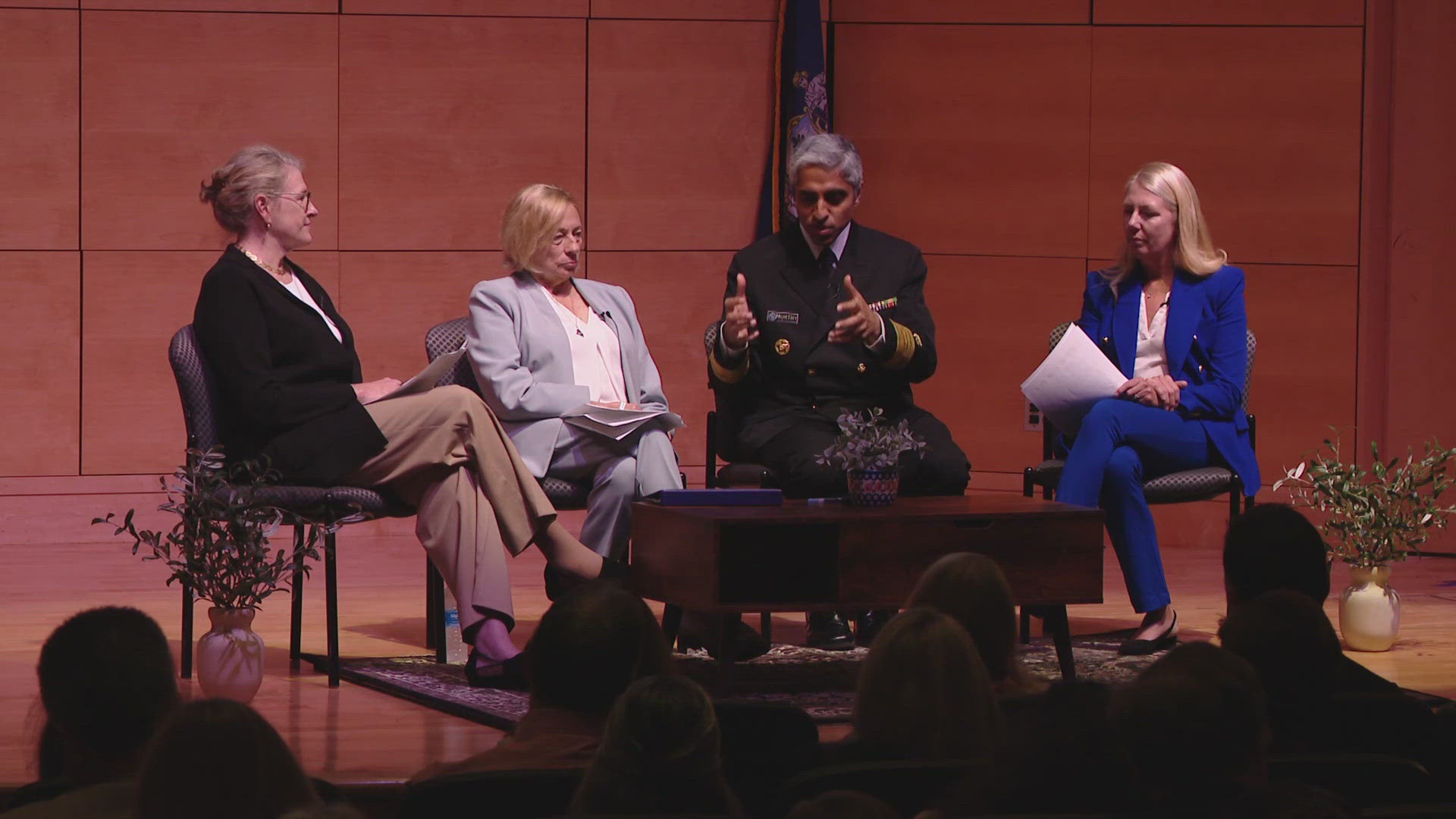PORTLAND, Maine — The U.S. Surgeon General joined Gov. Janet Mills at the University of Southern Maine on Friday to discuss the importance of social connections and their impact on public health.
U.S. Surgeon General Dr. Vivek Murthy said loneliness is a public health concern. Last year, he released an advisory highlighting how loneliness and isolation are taking a toll on people across the country.
"There is no issue that I have found more deeply resonant with people across the country in rural and urban areas, in the Midwest and the coasts, as this topic of loneliness and isolation," Dr. Murthy said.
More than 50 percent of young people and one in three adults struggle with loneliness and isolation, Dr. Murthy said. Loneliness and isolation harm a person's physical and mental health, as it's associated with a greater risk of cardiovascular disease, stroke, and dementia, among other health concerns, he explained.
"Young people are saying it's no longer our culture for people to talk to each other. Something has dramatically changed in our relationship to one another and how we communicate in dialogue with one another," Dr. Murthy said.
Dr. Murthy, Gov. Mills, and Maine Office of Behavioral Health Director Sarah Squirrell discussed how the state is supporting people during a time when so many Americans feel socially disconnected.
Mills said Mainers have experienced a hard year dealing with the mass shooting in Lewiston and severe storms slamming coastal communities, which is why it's important to bring this conversation to the state.
"Those things that happened to us ended up demonstrating what we have in common, the innate compassion and humanity of Maine people," Mills said.
During the pandemic, many people used technology to stay connected with their friends and family. While Dr. Murthy said the pandemic certainly didn't help social isolation, it is not the primary cause of the levels of loneliness in today's society. He said challenges with technology over-use predate 2020, but the pandemic has had a lasting negative impact on peoples' reliability for online interaction.
"During the pandemic, the first year of the pandemic in particular when kids were isolated from each other, their phones became lifelines for them," Dr. Murthy said. "But what we have seen is that some of those, that pendulum has swung to a point where now it's occupying so much of a child's life. And it's not only taking away from other activities, but it's also fundamentally changing their interaction with other kids."
If you or someone you know is experiencing suicidal thoughts, there are resources right here in Maine that can help navigate through those thoughts and find a path to hope. You can call or text the Maine Crisis Line 24/7 at 988 or 1-888-568-1112.
Maine Teen Text Support
This peer support text line is for Maine youth 13 to 24 years old and is staffed by individuals 18 to 24. Talk about your feelings and get support from another young person. Daily from noon to 10 p.m. EST at 207-515-8398.

